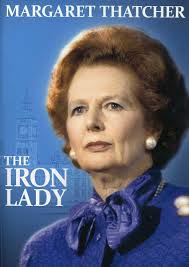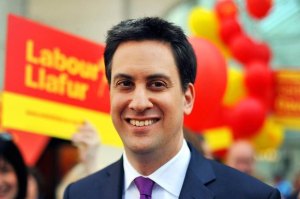 Who remembers this person see image and I will say no more as this person was the one who was responsible for the the sell off of many of the services during the late 1970s and early 1980s.
Who remembers this person see image and I will say no more as this person was the one who was responsible for the the sell off of many of the services during the late 1970s and early 1980s.
A new poll finds 80% of the public think there should always be a public sector bid when a public service is contracted out. The public rejects default privatisation by 10:1.
The poll was carried out by Survation and commissioned by We Own It, a new organisation committed to “Public services for people not profit” which launches today with a report calling for a Public Service Users Bill, which would require public ownership to be considered before privatising or outsourcing services, as well as in the bidding process. Cat Hobbs, Director of We Own It, said:
Despite what the government might think, people aren’t sold on the idea of privatising and outsourcing public services. We hope that this report, and the clear public support for public ownership, will spell the beginning of the end for privatisation-as-usual. In the future, public services will need to be owned by and accountable to the people they serve.’
We Own It’s new report ‘Better in Public Hands’ says public ownership is making a comeback, and includes examples of effective public services from across the UK and the rest of Europe. Damian Lyons Lowe, Chief Executive of Survation, said:
A clear majority of the general public, including Conservative voters, reject automatic privatisation of public services; 80% want to see public sector bids for all public service tenders, showing a clear desire not to see services simply privatised by default.
For public services that are operated by the private sector, the public would like to see far higher levels of transparency and accountability, with 88% both wanting higher transparency levels and an early end to contracts in case of poor service provision.’
A Public Service Users Bill would require that private companies be transparent about their performance and financial data and answer Freedom of Information requests. Currently, private companies can hide contract details behind a cloak of ‘commercial confidentiality’.
We Own It’s report follows outrage over the recent tagging scandal, where private companies G4S and Serco were accused of charging taxpayers tens of millions of pounds for electronic tags on criminals who were dead, in jail or had left the country.
KEY POLL RESULTS – FULL RESULTS AVAILABLE HERE
- 80% believe that when a public service is put out to tender, there should always be an in-house bid to see if the service could be provided publicly at better value (87% of Conservative voters)
- 79% believe citizens should be consulted and have their views considered before any service is privatised or outsourced
- 69% of Labour voters believe the public sector is more accountable than the private sector when running public services
- 60% think local and national government should run public services in the public sector as the default, and only consider contracting out if this fails
- 90% of Conservative voters believe the government should be required to end private company contracts early when they are found to be doing a poor job of running public services, following public complaints
- 88% believe private companies running public services should be required to be as transparent about their performance and financial data as the public sector
- 48% (mistakenly) believe that private companies running public services are obliged by law to respond to Freedom of Information requests
Do have a look at the new site, which is excellent, complete with 5 reasons why public ownership is better for you and 5 reasons why privatisation is bad for you
The question is are any government prepared to buy back the shares from the shareholders came to mind and its about time that the Tories should revisit their past mistakes and answer the question before it gets out of hand so lets have a public debate on it.
 Fuel poverty campaigners told Prime Minister David Cameron he needs to act now on the national crisis of cold homes.
Fuel poverty campaigners told Prime Minister David Cameron he needs to act now on the national crisis of cold homes.
Britain is second only to Estonia among European nations for the number of people who are struggling to pay their energy bills, according to research by the fuel poverty alliance Energy Bill Revolution.
The warning came as the government urged people to use their heating this winter as part of a plan to prevent some of the 24,000 avoidable deaths that occur each year.
Energy Bill Revolution, which includes charities Age UK, Barnardo’s and
National Energy Action and quango Consumer Futures, says the government is advocating quick fixes instead of getting to the root of the problem.
Energy Bill Revolution campaign director Ed Matthew said: ”Our political leaders are falling over themselves to come up with headline-grabbing ways to cut energy bills yet they fall woefully short of a true solution to the energy bill crisis.
”By far the biggest opportunity to cut energy bills is to fully insulate the UK’s leaky homes.
“No other investment can do so much for so many. If the government is serious about solving this crisis it must make insulating homes the UK’s number one infrastructure priority.”
The alliance said the wholesale cost of gas in Britain was much lower than in most European countries but households paid much higher bills due to the amount of heat lost from homes.
There are more than five million British households living in fuel poverty, defined as spending more than 10 per cent of their income on energy.
I’m sure many in the Labour movement will concur with Ed Miliband’s pledge to freeze gas and electricity prices is overwhelmingly backed by the public, but some voters are sceptical about the Labour leader’s ability to deliver on his promise once in office, a new poll for The Independent reveals.
His pledge to freeze energy bills for 20 months if Labour wins the 2015 general election was the centrepiece of his party conference speech, and propelled the issue to the top of the political agenda.
The ComRes survey found 80 per cent of the public supported his idea of prices being pegged while the “Big Six” energy companies are reformed, with just 17 per cent saying they opposed the move. A freeze is backed by voters of all political persuasions, with approval from 90 per cent of Labour supporters and 69 per cent of Conservatives.
But only 41 per cent of voters believe Mr Miliband will live up to his words if Labour forms the next government, compared with 52 per cent who forecast he will fail. Executives from the Big Six will be challenged today by MPs on the Commons Energy Select Committee to justify recent increases in charges of up to 10 per cent.
Labour has relentlessly highlighted its price freeze promise, shrugging off David Cameron’s accusation that it is unworkable. In bruising exchanges with Mr Cameron last week, Mr Miliband seized on the former Tory Prime Minister Sir John Major’s call for a windfall tax on energy firms’ profits as evidence of widespread support for state intervention to curb suspected profiteering by energy firms.
The ComRes poll, the first conducted for The Independent since the party conference season ended nearly four weeks ago, found Labour has doubled its lead over the Conservatives to eight points despite a one-point fall in support to 36 per cent since last month.
Support for the Conservatives has dropped to 28 per cent, the party’s equal lowest since the Coalition was formed, suggesting that the issue of energy prices is beginning to cost the Tories votes. The UK Independence Party (UKIP) edged up one point to 12 per cent, narrowly ahead of the Liberal Democrats, who remain unchanged on 11 per cent.
Support for other parties is up five points to 13 per cent, partly driven by a two-point increase for the Green Party, which is now on five per cent and a one-point rise for Plaid Cymru. Repeated at a general election, Labour would win a convincing overall House of Commons majority of 90 on those figures, with the Conservatives losing 87 seats and the Liberal Democrats 25 seats. Ukip would remain without a single MP.
 Labour is in the lead among all social and age groups apart from the over-65s who still lean towards the Conservatives, ComRes found. The slump in support for the Tories will disappoint party strategists, who had hoped for a bounce in the polls after their conference.
Labour is in the lead among all social and age groups apart from the over-65s who still lean towards the Conservatives, ComRes found. The slump in support for the Tories will disappoint party strategists, who had hoped for a bounce in the polls after their conference.
But they will draw some consolation from continuing evidence that they retain their lead on the crucial question of economic competence, even if the voters are sceptical about the ability of any politician to improve their well-being.
One third of the public (33 per cent) say they back Mr Cameron and the Chancellor, George Osborne, to make the right decisions on the economy (up from 29 per cent in March), while 25 per cent think Mr Miliband and the shadow Chancellor, Ed Balls, can be trusted on the economy (up from 22 per cent). Forty-three per cent of people who voted Labour at the last election said they did not trust Mr Miliband or Mr Balls on the economy.
 Somehow some Senior Conservatives are willing to stick two finders at us all and are more keen to move the focus to economic recovery, encouraged by last week’s growth figures. The Prime Minister underlined the message with a visit to a car plant in Oxford to highlight an initiative on apprenticeships which still does not help with the cause of how many on low and middle incomes are still seeing a high raise in the energy prices of which some has to depend on token meters to get both their electric and gas whilst the coalition still continues to play a dangerous game of politics by telling low paid to wear a jumper to keep warm surely we all have not done back to WW2 in order to save on fuel.
Somehow some Senior Conservatives are willing to stick two finders at us all and are more keen to move the focus to economic recovery, encouraged by last week’s growth figures. The Prime Minister underlined the message with a visit to a car plant in Oxford to highlight an initiative on apprenticeships which still does not help with the cause of how many on low and middle incomes are still seeing a high raise in the energy prices of which some has to depend on token meters to get both their electric and gas whilst the coalition still continues to play a dangerous game of politics by telling low paid to wear a jumper to keep warm surely we all have not done back to WW2 in order to save on fuel.
 Yet Britain has fallen down a global league table of prosperous countries, with countries like Denmark and Iceland now deemed better off.
Yet Britain has fallen down a global league table of prosperous countries, with countries like Denmark and Iceland now deemed better off.
The Legatum Prosperity Index, which annually assesses 142 countries on their “path to prosperity”, concluded that the UK had fallen from 13th to 16th place, leaving it behind Austria (15th), Germany (14th), and Iceland (13th). Norway maintains its position as the most prosperous nation for the fifth year running.
The findings will not be welcomed by the coalition, after George Osborne recently declared that the UK was on the “path to prosperity”, while David Cameron has repeatedly warned that the country needs to win a “global race” against other major economies.
This comes after a report by the World Economic Forum found that the UK had fallen from 8th to 10th as a globally competitive nation.
According to Legatum’s report, only 30% of Britons believed the economic situation was improving and just 10% think it is a good time to enter the job market.
Jeffrey Gedmin, President and CEO of the Legatum Institute, said: “The UK’s politicians must take action now or face the very real prospect of falling out of the top thirty most economically prosperous nations in the world.”
The report warns that the UK has faced similar economic problems to the US, but it is enjoying a weaker recovery.
“America’s future may be far brighter than the United Kingdom”, the report reads.
 “Both Britain and America have slid down the economy rankings for many of the same reasons; underinvestment, decreasing export competitiveness and high unemployment. Their decline reflects the fact that economic growth has been largely absent from Europe and North America since 2008.
“Both Britain and America have slid down the economy rankings for many of the same reasons; underinvestment, decreasing export competitiveness and high unemployment. Their decline reflects the fact that economic growth has been largely absent from Europe and North America since 2008.
“Compared with some other developed countries the US’s economy is beginning to look healthier than it has in the past. Despite some recent improvements in economic indicators, it is less certain that this is the case for the UK.”
Government Ministers have tried to justify the undervalued sale of the Royal Mail as a return to popular capitalism. It has been nearly thirty years since the Government’s “Tell Sid” campaign helped launch the privatisation of British Gas. We will never know if Sid bought any shares but one thing is for sure, if he is a UK resident he will certainly be paying the price as we continue to experience inflation busting year on year rises in the cost of gas and electricity.
While allowing people to make a quick profit may well prove popular, any short term gains can quickly evaporate, as prices rise, investment falls and shareholders seek to maximise their profits.
I am appalled at the annual energy price rises, three of the Big Six have already announced price hikes of around 10%, with the other three expected to follow shortly. However, we cannot sell off vital public assets and then complain when private companies act like private companies. The popular capitalism of the 80s has turned into a nightmare for the vast majority of ordinary families.
While the Big Six energy companies are running a public service, they are not public services, their sole purpose is to maximise profits, not look after the health and welfare of their customers. When wholesale prices rise, the energy companies pass on the costs to consumers, but when they fall, bills remain high, generating excessive profits and bonuses for company executives and shareholders.
The Government’s solution is more competition, but this has failed to deliver any savings to the public, as energy prices have risen by over £300 since David Cameron became Prime Minister.
Labour’s energy price freeze would help hard pressed families save £120 on a typical bill, while providing the opportunity to reset the market. However, high energy prices are a symptom of market failure and the cartel like behaviour of major energy companies. I fear the real cause of high energy prices is the market itself.
The Government are hailing the development of the next generation of nuclear power plants as a triumph for the private sector. However, these stations will be built by French and Chinese state run companies, with EDF leading the consortium.
While taxpayers will offset any upfront costs the consortium has been guaranteed a price for electricity at twice the current rate. The Government are essentially locking in price rises for the foreseeable future, to the benefit of foreign owned energy companies, and the detriment of the British public.
The privatisation of gas, water, electricity, and rail has now proven to be unpopular capitalism, as prices continue to rise and Government is seemingly powerless to act.
I fear we will see the same failings after the Royal Mail sell off, with price rises and service cuts to maximise profit.
Basic utilities and infrastructure are too important to fail, they are vital to the health and wealth of the nation. I believe we all deserve a share in these industries, and the government should start to listen to the majority of taxpayers wanting publicly owned and run public services, starting with gas and electric.
They should “Tell Sid” – we want our energy back.
















































You must be logged in to post a comment.